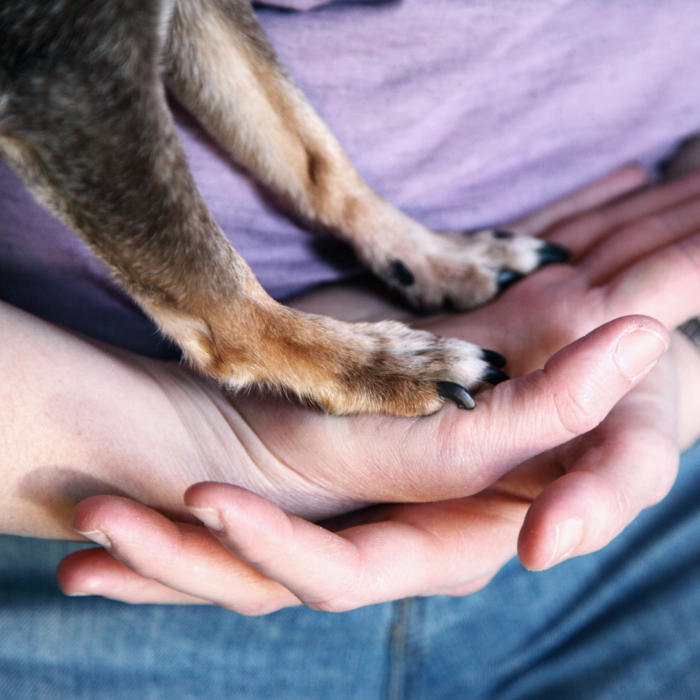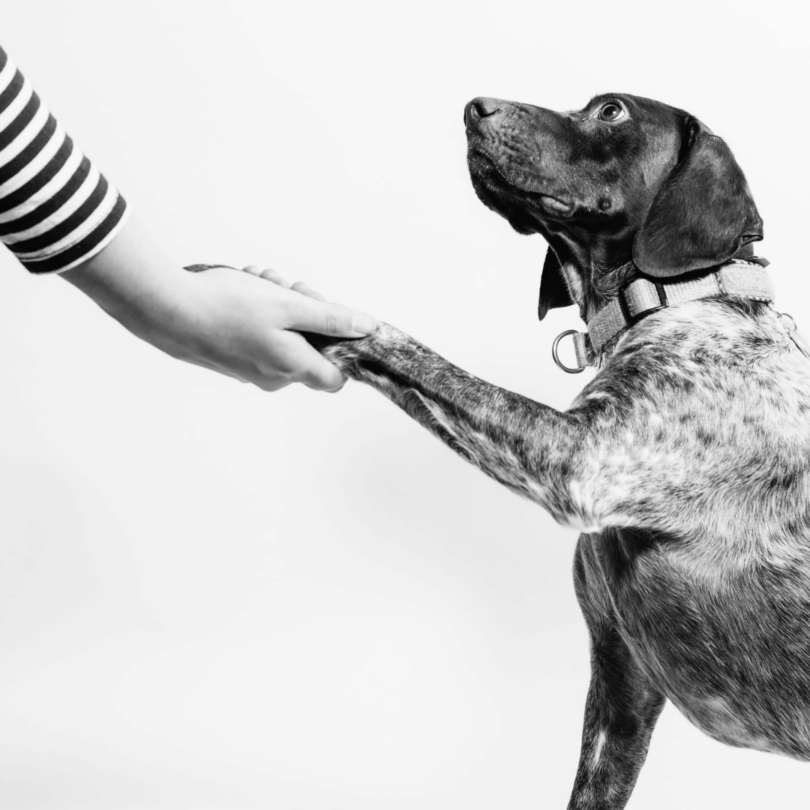In episode 40 of the Paws & Reward Podcast, I am joined by Dr. Jessica Higgins, host of the Empowered Relationship Podcast. We discussed resentment in our canine (and human) relationships. Dr. Jessica Higgins holds two graduate degrees in psychology, two coaching certifications, and over 20 years of experience helping clients achieve successful results. She helps people navigate the terrain of long-lasting intimacy more skillfully and mindfully. This type of connection can be found in all relationships. Many pet parents experience resentment from time to time. What can we do to recognize when we feel resentment, be proactive in our relationships, and heal those negative feelings? Watch our conversation on my YouTube Channel.
What is resentment?
Resentment is defined as bitter indignation at having been treated unfairly. We have a longing, hope, or need that we feel isn’t being met, fulfilled, or heard. It can be subconscious. It’s helpful to slow down and ask yourself, “What else might be true? What else should I consider?”
Resentment can come from comparison of others. It shines a light on what we are lacking in our lives, real or imagined, and those feelings can grow into resentment.
In some cases, as we reflect on these feelings, there may be some adjustments we can make to the situation to get closer to our needs. However, sometimes that is not possible, and feelings of grief are normal and valid.
What does resentment look and sound like?
Feeling irritable, frustrated, angry, or upset either on the surface or subconsciously.
Why might we resent our dogs?
- You may resent your dog for their behavioral limitations
- You may resent the training process (the ups and downs, the slow progress, etc)
- You may resent your family member(s) since they do not listen to your needs when you’re trying to advocate for your dog
- You may resent people on social when you start to compare your dog’s behavioral journey to someone else’s journey

How does resentment manifest itself?
It is often said that resentment is the beginning of the end of any relationship. So with that sentiment, resentment can also stir up shame. Feelings of shame can cause us to ignore the feelings of resentment and instead of addressing them, they become buried deeper which creates more problems. It can be scary to acknowledge but it dissipates the charge, takes away its power, and places a signpost for us to recognize again in the future.
Why is it detrimental to our relationships?
When we are living with resentment, we tend to be more tense, impatient, and irritable. Our behavior can become more volatile. The realization comes when we stop and reflect on whether or not we are filling our own cup or ignoring our needs. Often, we place ourselves at the bottom of our priority list. If we don’t take care of ourselves, give ourselves permission to step away and breathe, then our relationships can suffer. When we are dysregulated we can’t be in a positive give-and-take in our relationships with our dogs or other people.

How can one identify when they are feeling resentful towards their dog?
Everyone expresses resentment differently, but it can present itself as increased irritability, becoming easily frustrated or angry, having a short fuse, or feeling bitterness.
How can we be proactive with resentment?
Perfection is not the goal. Try to be in connection with ourselves so we can make small adjustments at the first signs of resentment. Instead of suppressing our needs and allowing shame to overcome us, we can be more in tune with micro-changes in our bodies.
Knowing what resentment feels like to us is essential to catching it early. Do you become more irritable and angry or do you isolate yourself and shut down? Once we acknowledge the underlying cause of the resentment and know what we need, we can take action.
What are some antidotes to resentment?
- Self-care
- Connecting with nature
- Alone time
- Creative outlets
- Social engagement
- Journaling
- Talking to someone
- Being flexible with your goal
- Finding more support
- Asking for help
- Changing our perspective

If we are able to turn toward the negative feelings then we can dissipate those feelings by utilizing self-care or the other strategies above. The worst thing we could do is ignore those feelings without taking any action to alleviate them.
What are some strategies pet parents can implement to address resentment as it’s happening?
We are all doing
the best we can.
First, give ourselves permission to acknowledge the growing resentment. Then we can find the underlying cause and an appropriate outlet to address what’s missing or being ignored from our daily lives. That way we can take steps to move forward.
Speaking kindly to ourselves and allowing ourselves to make mistakes is important for healing. We may not get exactly what we expect or want, but patience and time can sometimes give us something more than we ever expected.
Resentment is normal and as long as we learn to recognize and acknowledge it, we can move forward in a healthy way.
Dr. Jessica Higgins Resources:
- Dr. Jessica Higgins Relationship and Transformational Coaching
- Empowered Relationship Podcast
- Shifting Criticism For Connected Communication Guide

